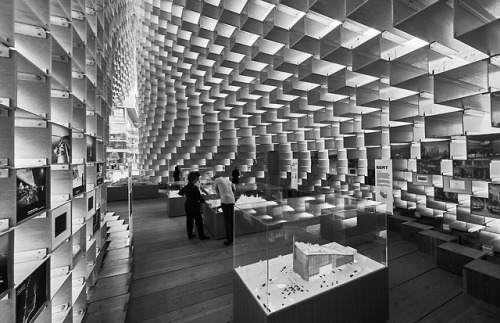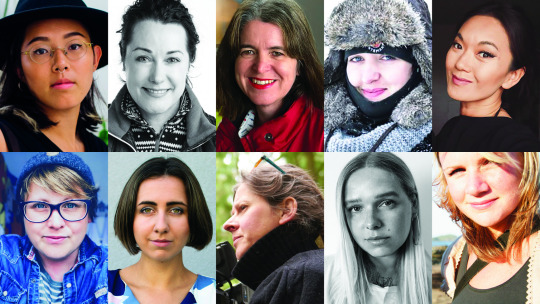Photographers

Peggy Saffrie: telling stories using imagery
1x Blog-Photographersby Editor Yvette Leur
I was first introduced to Peggy Saffrie at a network meeting organized by a Fine Art Printer. It was a great afternoon where like minded photographers and artists had the opportunity to talk candidly about the pros and cons of the photography/art business. I had seen some of her images at the Canon Grand Prix 2017 competition trough social media and was truly impressed by the impact her images had. When our paths crossed again, this time at a network Barbecue, I just blurted out, "I have to interview you next." The way she can tell about her vision, inspiration and struggles is truly inspiring to me. And let's face it, her images are amazing. So I would love to introduce you, the readers and viewers from the 1x community to this artist who tells her stories using imagery.
Please introduce yourself to the readers?
My name is Peggy Saffrie. I am a Dutch, half Indonesian Photographer, Digital Artist. Married with two little children. I like to tell my stories by using imagery, using nature as my guide.
When did you start photography?
The intention to start photography was existing long before I started. About eight years ago I finally followed trough and went back to school. I didn't start sooner because of the people surrounding me. They were saying, there's no money to be made in photography.
For years there was this feeling, something was missing. I didn't figure it out immediately but later realized it was photography. After following a base course in photography, everything just came together, it was like a real Duh! moment. I just became a mother for the first time but I realized, I don't know how, but I have to do this. This is my path. And while there are always arguments to delay, I knew I had to start right now. I did it and never had any regrets.
How would you describe your photography style?
Storytelling, Melancholic, Confronting. I want the viewer to have a first look, like the image but then start thinking. Have another look and try to figure out "what is really happening in this picture?" Hand out a sort of trigger to keep observing.
The most important part is the stories behind the images. Not my vision of the truth, but my opinion or perception.
Emotion, awakening. Evoke a reaction or feeling. Confronting people with subjects they haven't thought about before they saw the image.
Do you think about that concept before you start the process?
Yes, about the feelings that can be behind an idea. How to decode the story. People don't often make time to think about how other people perceive things. Or my interpretation of it. I don't think I am strong enough yet to verbally describe my feelings, but with my images, I feel I can do a much better job. Maybe people will realize, maybe not. It's OK either way.
For example the photograph "Secrets of Perfection'. It's about our goals to strive for perfection. You do not want to show your imperfections. What's considered perfect is put on a pedestal. And those same people have to deal with the same problems and imperfections on a daily basis. Why can't it be good enough just the way it is?
How did you develop your own style?
The need that I wanted to create and tell stories was always present. I followed workshops and kept on learning and practising. I collect a lot of images, try to dissect why I like it. What works, why it's so alluring to me. The images can be anything, drawings, paintings, photographs, even projections onstage during a concert. I am noticing that I start to search for more divers media than just photography nowadays. Like paintings and digital artwork are added to the collection.
My photographic style? It's like a digital pallet. You can't say photography with lots of Photoshop is realistic, but neither is a painting.
Are you photographing/editing full time?
Yes I just started photography and digital art full time.
What do you think about the business end of the work?
I can't judge about this yet. I am just starting my career in this new path. It's exiting for I am not a very businesslike person. That is the complete opposite of how I feel and what my art is about.
It is going to be a great adventure for sure.
What is the best piece of advice you've ever been given? Who gave you that advice?
Never give up! I can spend many hours, sometimes even days on editing one single image. I used to think this was just stupid, that nobody would spend that amount of time editing. It felt like failure. I really do love the editing process. But when it didn't feel right, I needed to spend more hours on the final image.
When you find out later your work is appreciated, that the hours of editing paid off and people can tell how much effort you've put in, that that's the magic. Then it can never be to many hours. It's your work, so you decide, always!
Where did your passion for creating images come from?
For me, it's a way to express myself I don't think I can verbally.
Where do you get your ideas/inspiration from?
Feelings, struggles, experiences.
Are there any photographers who were a great influence or even mentor to you?
There are many photographers that inspire me.
It all started with Renee Robyn because of her compositions in Photoshop. When I saw her work, I realized how big the possibilities were. You can combine so many elements. Her images are just incredible.
Brooke Shaden inspires me because of her power to evoke emotions.
At the moment Russian photographer Dmitry Rogozhkin inspires me. The way he uses colour and light in his imagery. The mood he creates, can give me Goosebumps.
The images from these photographers are not similar to each other or with mine. But some of the individual elements from their work, continue to give me great inspiration. It's just unique.
Mentors: Aad Sommeling and Richard Terborg . These photographers are always so willing to help, keep learning me so much about the business and Photoshop and always give great advice. I will forever be grateful.
What makes you the happiest when it comes to photography and or editing?
When all the pieces just seem to fall into place.I start out with a plan, and while in the process, things sometimes change. I can get inspired to do something completely different. At those times, I just toss the old plan out, and most of the time the new idea seems to works even better. It's a part of the whole process you go through when you create fine art.
What's important to you. The story? The emotion? The technical skills?
All parts are equally important. Without skills, the outcome will not be realistic. But the story and emotion are super important to emote the whole story.
Are there parts you don't like as much?
Well, the technical part isn't my favourite. Your equipment has to work. With updates and uploads and stuff, it can cause a lot of stress.
What are your go to solutions for problem solving?
Keep trying until you succeed.
Please show us 3 of you photographs that you are really proud of and please describe why?
The images I am most proud of are the once that have a message.
This image is about the permanent damage caused by negligence. We are often unaware of the damage with irreversible consequences we can cause by neglecting someone.
I like to use symbolism in my imagery. Mostly portrait by animals. The swan in this photograph stands for loyalty and dependence. I photographed the woman and the swan as equals. This to make the final result more powerful.
This is a personal story. I don't like being the centre of attention. I don't feel comfortable there. I feel I have trouble finding the right words to tell a story or convincingly get my point across in an argument. I just don't like that.
Photography and digital art is my way to tell my story without words, using imagery to the world. In this photograph the bird is the one telling the story.
Normally I don't describe my images. I want to give the viewers a chance to tell their own story. That's what I love so much about this work, you can guide someone in a certain direction and let them find their own perspective.
Can you tell me about your gear and editing software?
I own a Canon 5D mark III, a 85 mm and a 24/70 2:8 lens. I work with natural light and soft boxes. Editing with Lightroom and Photoshop.
How do you work best? Alone, team?
Alone, with a model when necessary. I do a lot of self-portraits. This is so much fun. That feeling of "What am I doing??" And then succeeding! Priceless!
The advantage of self portraiture is flexibility. I can go out whenever I want or when I have some spare time available. I don't have to explain my plans. Disadvantage can be a lack of helping hands. But it always works out just fine in the end.
Can you tell us some of your highlights? (Competition, Publications, exhibitions etc.)
Competition Canon Grand Prix 2017 and Olympus Featured Talent 2017 Photo Contest.
The appreciation and recognition it brought, not only to my artwork but also personally. It was good for building my self esteem.
Where can we find you? Websites etc.
https://www.facebook.com/peggysaffriephotography/
https://www.instagram.com/peggysaffriephotography/
Can you give us some information about bookings and assignments? (Workshops, exhibitions, shoots)
www.peggysaffrie.nl/contact
Are there any workshops or exhibitions in the near future?
Exhibition: Kunstroute in Volendam NL, (pop- en cultuur huis PX) – Saturday 27 October & Sunday 28 October 2018.
What would you like to say to the readers? Tip/Quote?
Get inspired. Find out what attracts you and try to figure out why it's so special to you. Take the time to find your heart.
Whatever you make, be sure it comes from within. Don't borrow someone else's ideas and work process. Don't worry about what other people might think because your different or misunderstood.
If it comes straight from your heart, the outcome will be 1000 times stronger.




























